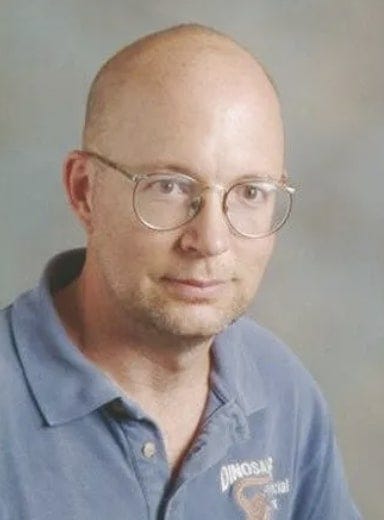Don’t get me wrong. I’m a pickleball player. I play lots. So it might seem surprising that I’m against Park Township constructing 10 more pickleball courts at the site of the former airport in Park Township. It’s just that I’ve learned from experience that more of a good thing is not necessarily better. Sometimes it’s a negative.
This runs counter to the American mindset. As I write this, I’m watching the story of the journey of Lewis and Clark on Story Television (great channel — available at 54.4 with antennae).

Washington, Jefferson — our founding leaders wanted more. More land, more room, more opportunities. Daniel Boone moved to Kentucky when he felt crowded by a neighbor 20 miles away.
This mindset runs through modern affluent Americans. Ever notice how easy it is to spot a group of Americans at international airports? How do we give ourselves away? We walk in groups all spread out, we swing our arms wide, we speak loudly. We take up lots of room.
Check out Laketown Beach south of Holland at the end of 142nd Avenue. Looking in either direction, you’ll see an army of signs warning everyone that they are trespassing on private land. The houses aren’t even visible, but the landowners want their expanse to themselves. The beach has been there for thousands of years — shared by Native Americans and wild animals, but now it is owned by us who came late to the North American continent and claim the land for ourselves. Stay off — give us our room.
“More is better” is seen as one walks into many West Michigan churches. Sanctuaries have been replaced by auditoriums. Know the difference? If you’ve ever gone there alone to reflect, pray and meditate because it has an ambience that suggests God’s presence, that’s a sanctuary. There are a few in Holland. Some old, such as Grace Episcopal Church; some new, such as the chapel of Western Theological Seminary. Zeeland has one at Second Reformed Church. But increasingly, churches instead have large auditoriums to hold lots of people in spacious comfort.
Indeed, visiting one such church, the entrance hallway/mingling area is so large that there is no need to be close to anyone you don’t know. Doing so feels like needlessly standing next to a person in an elevator — it is invading their space. Entering the auditorium, there are circular tables and chairs, so families can sit together with no need to mingle with strangers. Thus copious space hinders fellowship.
Hope College is sitting in the center of Holland, which shows this principle in spades. Hope is a residential college, most students living on campus or within easy walking distance. Unlike GVSU, for example, there is little need for expansive lounges for commuting students who drive to campus and need a place to relax between classes. But Hope has lounges in abundance — several more large ones in their two newest buildings. More yet to come in the Eighth Street expansion. The more the better; no need to sit close to anyone. Living on East 12th Street, Hope has five training rooms within 1,000 feet of me. If one is good, five are better. Newest residence accommodations at Cook Village are palatial.
Before Hope College tore down the old Nykerk Hall for a spacious lounge-filled building, students used to arrive 45 minutes early to get a seat for their homegrown VanderProv comedy show. Crowded in the small auditorium, every seat full and aisles bursting, the students found ways to amuse themselves until the show began. By the time it did, they were primed and ready. The limited, tight space added immensely to the atmosphere and fun.
Sentinel Leach is a reader-supported publication. To receive new posts and support my work, consider becoming a free or paid subscriber.
Yes, we Americans behave like electrons on a conducting sphere — we spread out from each other as far as possible. We want room — more room, even though experience shows that the opposite often is more satisfying. How fun is it to see the opening of a movie in an empty theatre? Why do young people love rock concerts where they are squeezed together?
So, back to the pickleball courts … what’s wrong with having crowded courts with a few people waiting — visiting and getting to know each other? Also, it’s easier to find fellow players around town without so many court locations. Why the need for 10 more when the present courts around Holland are easily handling the demand with ample free time and courts available?
Too much of a good thing isn’t always better.
— Community Columnist Tim Pennings is a resident of Holland and can be contacted at timothy.pennings@gmail.com. Previous columns can be found at timothypennings.blogspot.com.




